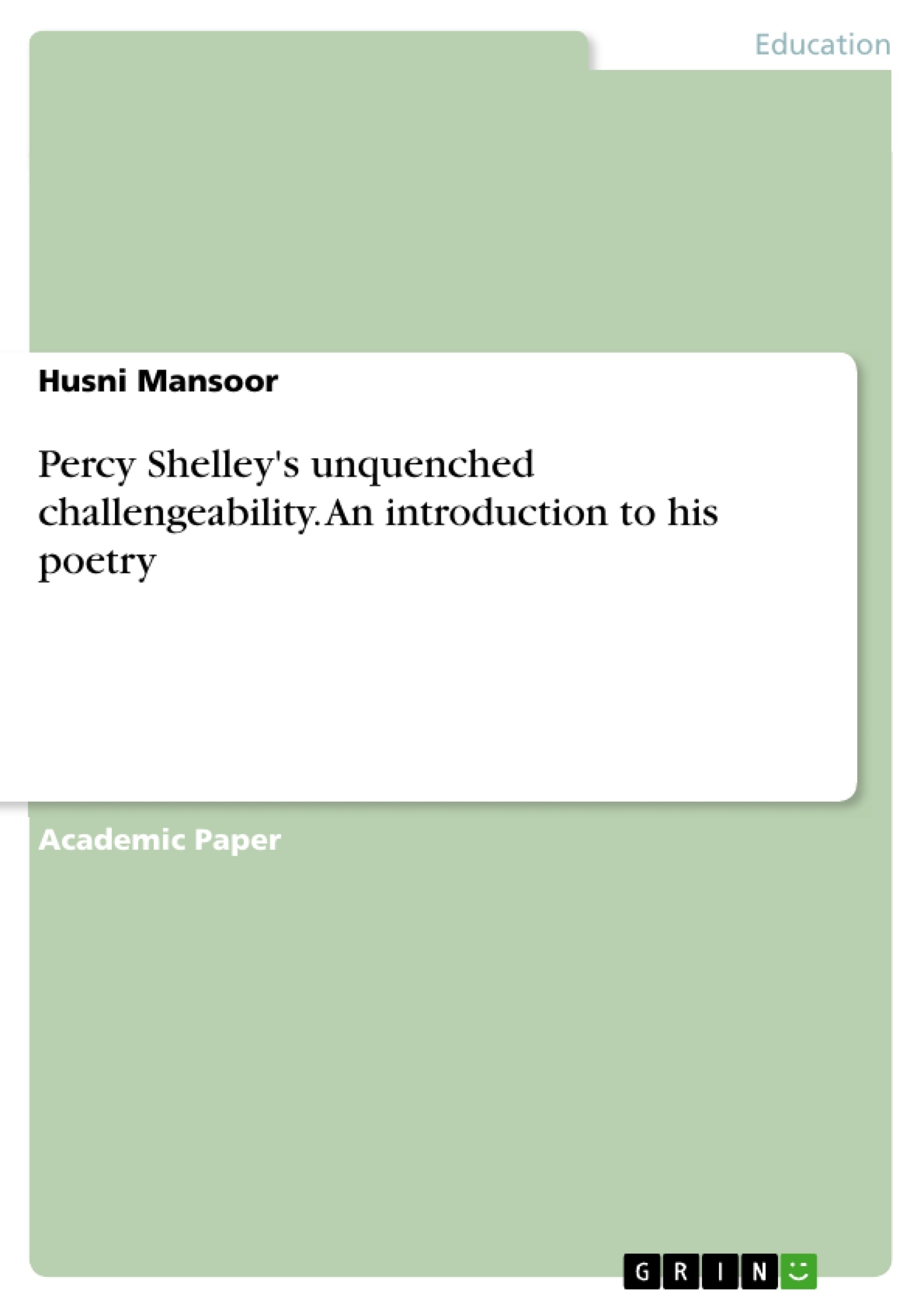Percy Bysshe Shelley appears as one of the most prominent romantic poets whose spirited poeticity forms a rich field to study throughout time. Even though he died young like few great poets, his famousness spread wherever wind fly and reach as he had wished.
His spontaneity with focusing on inner reality rather than appearance is supposed to be as the characteristic not only to avoid any unneeded consequences but also to revive the centre to reflect its positive ray-like radiations to all parts. Shelley’s love for books seems to have exceeded any other desire.
He probably absorbed various cultures and reproduced it in a very creative, abstract and glorified manner. The poet has possibly left no stone unturned to make an effectual contribution to cultural change. His poetry seems to be in a continual motion, ready to change and resist unconstructive changing. It can be assumed that because of his charm poeticity and its challengeability many academicians still push each other to study and analyse his works to discover more in his devoted personality and fertile writings.
Inhaltsverzeichnis (Table of Contents)
- Abstract
- Introduction
- Conclusion
- Works Cited
Zielsetzung und Themenschwerpunkte (Objectives and Key Themes)
This work examines the life and writings of Percy Bysshe Shelley, focusing on the multifaceted nature of his personality and the enduring significance of his poetry. The study explores Shelley's complex relationship with both his family and societal norms, highlighting his rejection of hypocrisy and his search for authentic expression.
- Shelley's rejection of hypocrisy and his pursuit of authenticity
- The impact of his early life experiences on his literary work
- Shelley's embrace of diversity and his fluency in multiple languages
- The interplay between Shelley's personal life and his poetic themes
- Critical reception and enduring impact of Shelley's poetry
Zusammenfassung der Kapitel (Chapter Summaries)
- Abstract: This section provides a brief overview of Shelley's life and work, emphasizing his enduring legacy as a prominent Romantic poet. It highlights his focus on inner reality and his commitment to cultural change.
- Introduction: This chapter explores the diverse critical responses to Shelley and his poetry, showcasing both praise and criticism. It examines contrasting interpretations of his work, ranging from praise for his poetic talent to critiques of his perceived madness and idealism.
- Chapter 2: This chapter delves into Shelley's complex relationship with his family, particularly his father and grandfather. It examines Shelley's rejection of hypocrisy and his refusal to conform to societal expectations.
- Chapter 3: This chapter focuses on Shelley's political and religious views, highlighting his critique of institutions and his search for alternative models of social organization.
- Chapter 4: This chapter explores Shelley's tendency towards aloofness and his unique approach to creativity. It discusses the perception of Shelley as "mad" and his use of fantasy and imagination in his work.
- Chapter 5: This chapter examines Shelley's linguistic abilities and his diverse literary influences. It highlights his fluency in multiple languages and his extensive reading across various cultures.
Schlüsselwörter (Keywords)
This research explores the life and writings of Percy Bysshe Shelley, focusing on key themes such as authenticity, hypocrisy, societal norms, political and religious institutions, creativity, imagination, and multilingualism. The study examines critical responses to Shelley's work and highlights his lasting impact on literary history.
- Quote paper
- Husni Mansoor (Author), 2017, Percy Shelley's unquenched challengeability. An introduction to his poetry, Munich, GRIN Verlag, https://www.hausarbeiten.de/document/382028


